In most fantasy tabletop role-playing games, the most impactful decisions surrounding the structure of your character are made at the moment you decide on your class. Maybe later you’ll pick up feats that afford the opportunity to enhance abilities outside the sphere of “druid” or “fighter” or “wizard”, and of course throughout the game you will be granted items of power and significance that help you unlock previously restricted options. But by and large the bulk of the character’s mechanics both immediately accessed, and promised at future levels, are set in stone the moment you select your class. There are of course many schools of thought surrounding this paradigm, some of the more oppositional ones have led to the creation and adoption of “classless” systems. Despite that offshoot of playstyle, classes have been a fundamental part of Dungeons and Dragons since its inception, as they facilitate a diversity in abilities among party members, and allow each character/player to fill a niche which they can feel exceptional in.

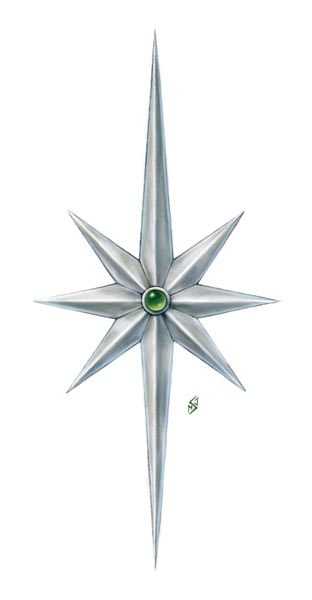
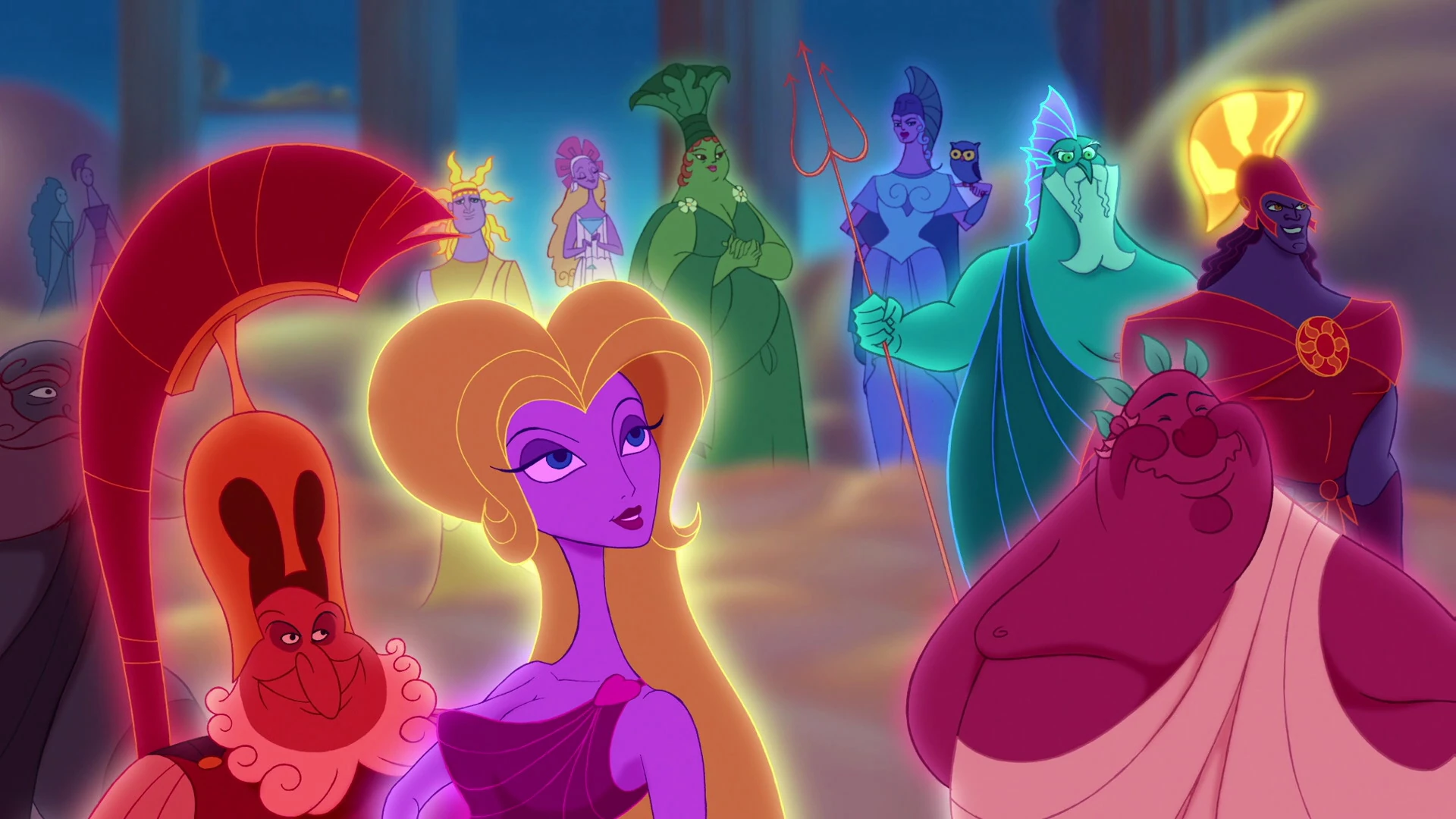
In the original Dungeons & Dragons boxset created by Gary Gygax and Dave Arneson, later published by TSR in 1974, there were 3 classes: the “fighting-man”, the “magic-user”, and the “cleric” (the “thief” was added later in the year). We are all familiar with these persistent archetypes. The fighting-man is ostensibly the front-liner, the one that wields a sword and shield, wears a suit of armor, and slays beasts through sheer might. The cleric finds their power through dedication to a deity, who grants them the boon of divine magic because of their staunch faith. The magic-user can (of course) also wield magic, but their powers are derived from a different source. Magic-users cultivate their abilities through careful academic study of the arcane arts (in the case of a wizard), or their proclivity for arcana is intrinsic due to some peculiar connection in their past (in the case of a sorcerer). Here we see that this distinction between “cleric” as a practitioner of divine magic and “magic-user” as a practitioner of arcane magic has been present from the beginning of D&D and fantasy TTRPGs as we know them today. The differences between arcane and divine magic aren’t just semantical either. Divine casters generally have access to spells associated with healing and buffing allies, while arcane casters can specialize in a variety of schools such as transmutation, evocation, or abjuration, to both aid and abet. In more recent editions of D&D, clerics can specialize a bit more with their domains, which allow them to better represent a devotee of any god, not just one that is all about healing and good and light. Another basic facet of the cleric kit is their ability to turn and destroy undead; a reasonable power to be granted by deities, as undead are basically direct rebukes of their authority to delineate the boundaries of life and death.
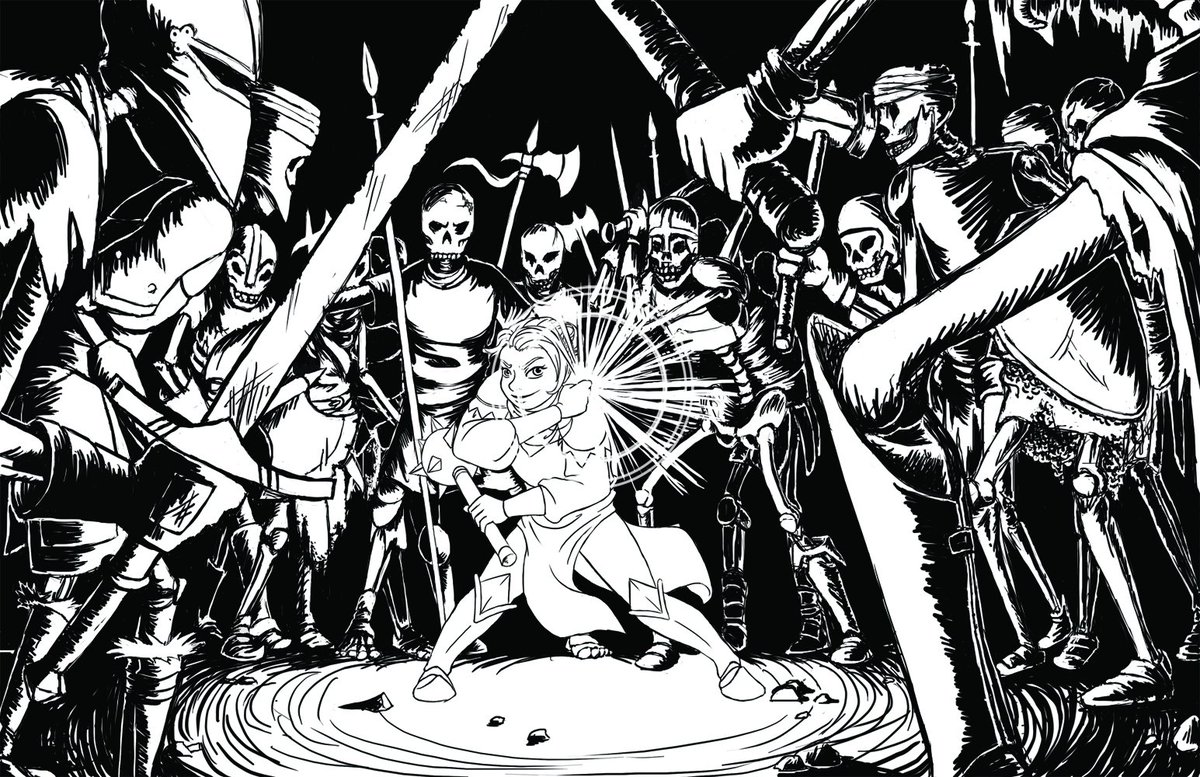

Photo by: @AestheticRift on Twitter
The source of arcane casters’ power is slightly more nebulous. Wizards and sorcerers understand how to manipulate the fabric of the universe in ways that are similar to divine casters, but they require no fervent devotion to a higher power. Do they draw from the same source? Have arcane casters simply bypassed the gods, tapping into the same magical font as them? Have they reduced these all-powerful to mere divine middle-men? Everyone who runs a game or creates a world will have slightly different answers to these questions, but in my mind, I think a more interesting world is created if all the answers are yeses. If that is the case, then the gods themselves would feel cheated by these devious arcane artists. The fundamental power that suffuses the universe can be siphoned by mere mortals as well! Therefore the entirety of arcana is also a direct rebuke to the gods, just like undeath, which just so happens to be associated with corrupt masters of the arcane arts who have defied death by becoming liches! This helps explain a great deal on a wizard’s implied agnosticism, and general disinterest in worship. And even if they did have a deity they liked and could get behind, that deity would reject them as a follower, refusing to grant them recognition, except under very rare circumstances.
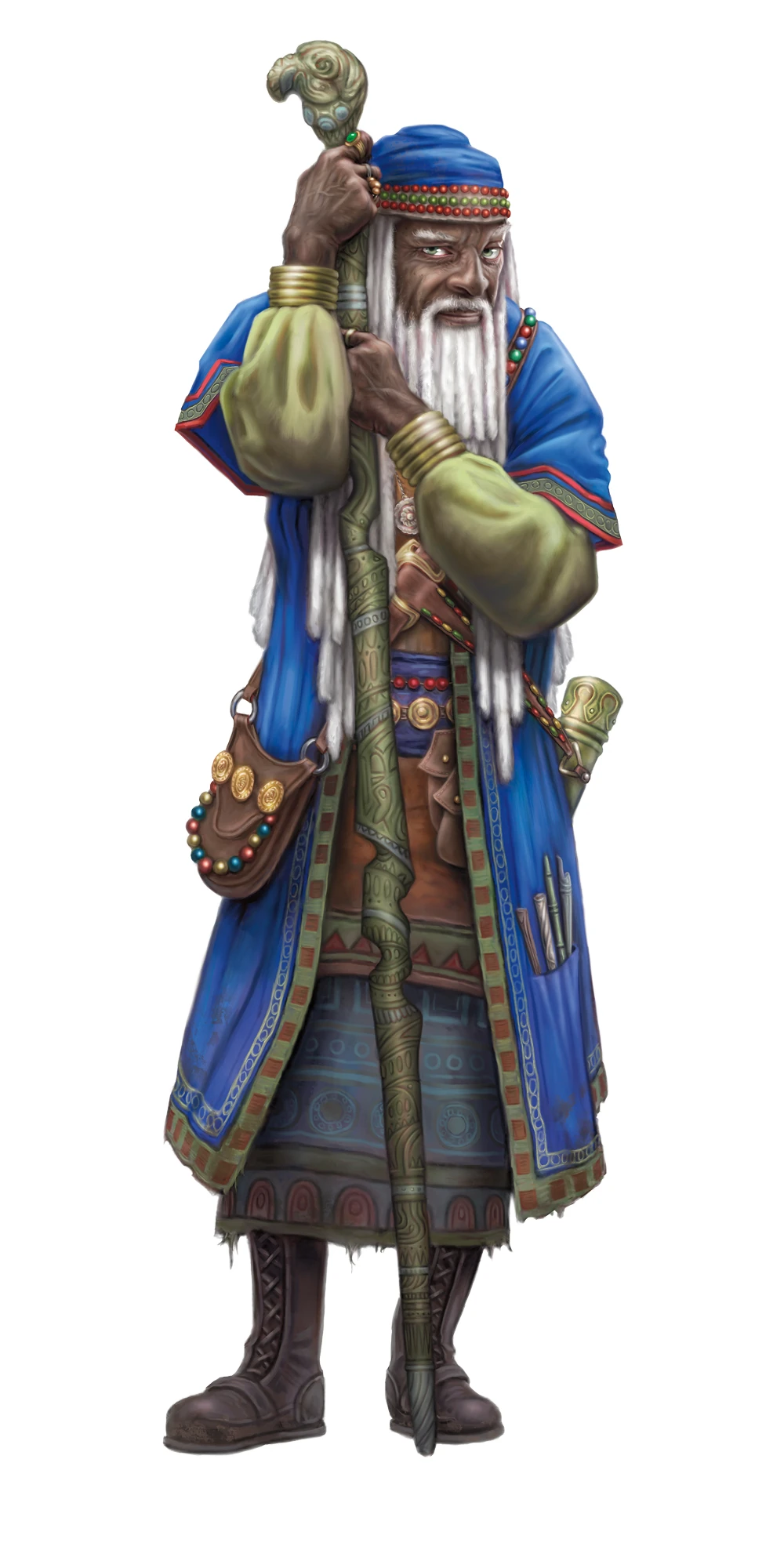

The other night I was planning my next session and I had to reference my pantheon to remember a goddess whose name had slipped my mind. I use the Dawn War Deities, and I quickly found the name I was looking for, Avandra, goddess of change and luck. But then my eyes got caught on another moniker for a second, that of Corellon, goddess of the arts and…magic. Maybe you can see where this is going, but at the time I had no idea why I developed a sudden interest in Corellon, a pretty minor goddess in my opinion, possessing nothing too ludicrous about her domains. I closed the tab, and kept writing, unaware of the fictional earth-shattering irony I had stumbled upon.
The next day, I was talking to my friend, who happens to also be the other contributor to this blog, about various rpg matters of great importance, when that idea of a god of magic came to mind. Suddenly the context and all the exposition at the beginning of this post began to fill my head. That odd feeling I had the previous night about Corellon, goddess of the arts and magic, suddenly became clear, and explainable; if divine magic is the gift of the gods, and arcane magic is the mortal man’s defiance of the gods, then why in the hell was there a goddess of magic? If every god can dole out divine magical privileges to the believers and devotees, then for god’s sake (oh you betcha, pun intended), why is there a god who needs to specialize in that realm? Wouldn’t that be totally redundant? Isn’t it implied that magic is a force all gods can manipulate and parcel out as they please?
But what if…what if she is not just the goddess of magic, but specifically the goddess of arcane magic?


That was certainly a more interesting question than any posed previously, with implications that would definitely require more exploring. SpamIam and I mused over this for a while, and eventually arrived at a fascinating conclusion, one that surprised and delighted us. If the goddess of magic is the creator and custodian of arcane magic, then she is an outcast. In fact, not only is she a black sheep, but she is a rebel, who actively compromises and marginalizes the powers of her peers. She has revealed the secret of how to access forbidden power, which previously only the gods could obtain and gift, to any mortal who has the patience to sit down and read a book. She would not only be shunned, but most likely sought after with malicious intent. This is an issue that could even unite deities from across the divine aisle; the act of treason damages the length of Vecna’s reach as much as Pelor’s, Bahamut’s as much as Asmodeus’.
I’d like to argue that this reality of the goddess of arcane magic being an outcast would be a perfect setup for an epic level game, or perhaps a backdrop for an entire campaign. And this is my blog, so I’m gonna, and no one can stop me.
The god of magic (we’ll use Corellon) at the time of creation, thought that the exclusive access her kind received to the great font of power that suffused the universe was unfair. She believed that their creations should also have a method of accessing and harnessing it, albeit in a much less significant way, if they worked hard enough and dedicated themselves to the art. She took her first domain to be that of art, and imbued the creations of the world with the ability to paint, dance, sing, and create that which was beautiful and significant. Outwardly, she took no other domain for her own, feigning satisfaction with just her one contribution. But in secret, she fed knowledge to the mortals that had just been molded into beings of their own, all lit with a doomed fire that would one day be extinguished. She taught them how to tap into the font of magic for themselves, to gain access to a portion of the powers of the creators. They thanked her for the secrets that would help them live better lives, but did not revere her in the same way as others did toward more prominent gods and goddesses.

Corellon knew what wrath would possess the other deities when they discovered her slight, and foresaw the punishment that would befall her if she could then be sought out. So Corellon constructed a prison, not to keep anyone in, but to keep others out. She hid it between the planes, somewhere outside comprehension, striking deals with powerful creatures and tricking some of the other gods into assisting her in her endeavor. When it was complete, she sealed herself in her undiscoverable, impenetrable fortress, away from everything else.
When the gods discovered what she had done they became enraged, and blamed each other for their stupidity and complicity. They vowed to destroy her, but they couldn’t seem to locate her. She had disappeared, although her presence was still felt in the mortal world, meaning that she persisted elsewhere.
When the gods do locate her, as undiscoverable and impenetrable are less absolute to those who are deemed unkillable and immortal, they will destroy her, thereby erasing the secret of arcane magic from the minds of mortals and beings of the planes.
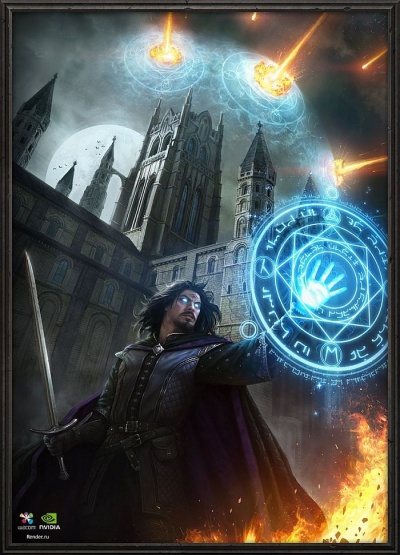

This conflict would first of all be an amazing adventure at epic levels. The heroes would be implored to pick sides. Do they ally themselves with the desperately outnumbered oppositional force of Corellon, and fight for the life of arcane magic? Or do they side with the combined might of the pantheon, but in doing so kill the most generous god of all, and ensure the destruction of the arcane arts once and for all. Either way, it would be a legendary adventure.
If that conflict was the grand finale of a campaign, maybe the next campaign takes place in the aftermath. Perhaps arcane magic does not exist anymore, and the gods have instituted some sort of divine martial law, where everyone must be a strict devotee and swear allegiance to a deity, or else they are pursued by the minions of the divine. Or on the other hand, maybe Corellon was saved, and managed to repulse the attacks of the gods with the help of the players. Maybe the other gods’ powers have greatly diminished, whereas those of Corellon have flourished! Perhaps the world now is chock-full of arcane magic, and now it’s power is bolstered. Everyone now knows a few spells, and the true masters have become de facto demi-gods! A world flooded with arcane magic would progress rapidly, cities would modernize transit from horses and carts to flying carpets and airships. Farmers could make plows drive themselves, while they sit back and relax. Society would be changing radically with every passing day, but that also insinuates great consequences. Those who seek to commit selfish and destructive acts now have had their abilities enhanced, and although those who seek to hinder this evil have also been bolstered, it is still easier to destroy than to rebuild…
I guess the unintended conclusion of this commentary is that gods don’t have to be adversarial toward each other solely around the axes of law vs. chaos, and good vs. evil. Instead they can be multi-faceted beings, who have distinct relationships with one another that affect the very essence of the world.

This is just one interpretation of the consequences implicit in the existence of a god of magic in the mythos I’ve described. There are of course infinite other interpretations, but I hope that this particular way of seeing it is entertaining and intriguing. If you have the urge to steal it for your own world/game, I encourage you to satiate that urge! To me, that is the highest form of flattery, and by god I've stolen enough ideas from other content creators, it about time I gave something back.
Comments
Post a Comment